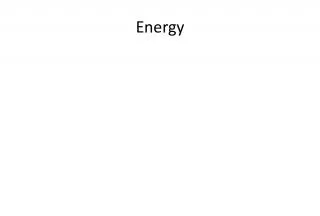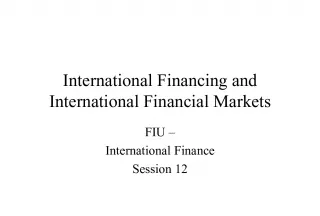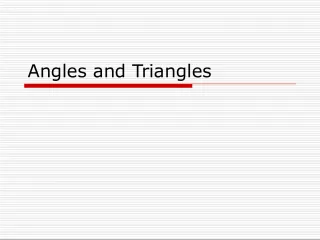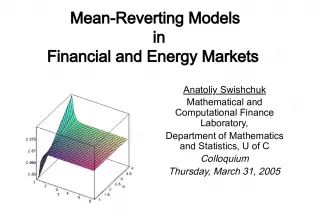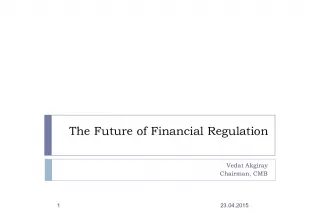Understanding Different Types of Markets
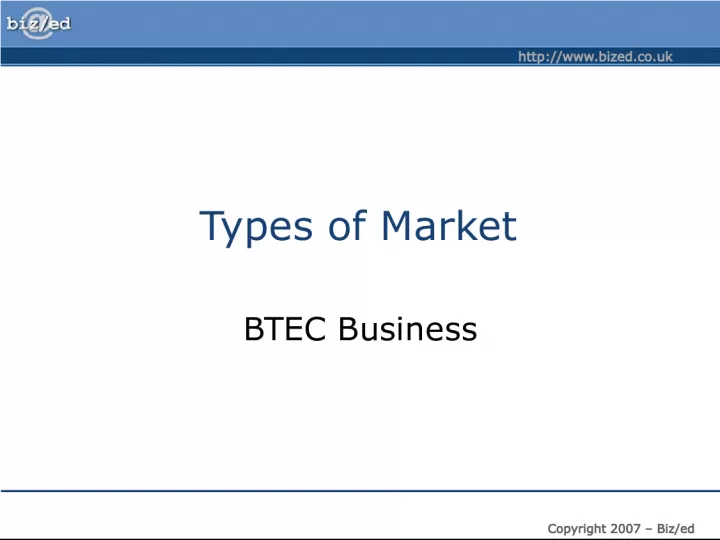

This article explains the importance of markets in business. From physical to invisible markets, it explores the different ways buyers and sellers exchange goods and services.
- Uploaded on | 0 Views
-
 valerie
valerie
About Understanding Different Types of Markets
PowerPoint presentation about 'Understanding Different Types of Markets'. This presentation describes the topic on This article explains the importance of markets in business. From physical to invisible markets, it explores the different ways buyers and sellers exchange goods and services.. The key topics included in this slideshow are Markets, Business, Types, Buyers, Sellers,. Download this presentation absolutely free.
Presentation Transcript
1. http://www.bized.co.uk Copyright 2007 Biz/ed Types of Market BTEC Business
2. http://www.bized.co.uk Copyright 2007 Biz/ed What are Markets? A market is where buyers and sellers: meet to exchange goods and services usually in exchange for money The market may be in one specific place or not exist physically at all
3. http://www.bized.co.uk Copyright 2007 Biz/ed An Invisible Market? Markets can exist: over telephone lines online in emails As long as what happens involves buyers and sellers in a business transaction
4. http://www.bized.co.uk Copyright 2007 Biz/ed Consumer Markets You should be familiar with these: consumers interact with sellers to buy goods and services sellers can be retailers using high street shops or out-of-town stores sellers can use other sales media
5. http://www.bized.co.uk Copyright 2007 Biz/ed New Ideas for Selling to Consumers Alternatives to conventional retailing: Mail order (including catalogue shopping) Online, Web-based selling (e-tailing) Direct producer-to-consumer selling
6. http://www.bized.co.uk Copyright 2007 Biz/ed Industrial Markets The business worlds equivalent of consumer markets: business organisations sell to other businesses not to a final consumer these other businesses use what theyve bought to make new products
7. http://www.bized.co.uk Copyright 2007 Biz/ed Commodity Markets Buying and selling products from the primary sector of industry: Use the Biz/ed Glossary to check what primary sector means at: http://www.bized.ac.uk/glossary/glossary.htm
8. http://www.bized.co.uk Copyright 2007 Biz/ed Whats Traded on Commodity Markets? Goods traded on commodity markets include: coffee cocoa oil precious metals diamonds
9. http://www.bized.co.uk Copyright 2007 Biz/ed Rich and Poor? Commodity markets often have their centres in developed countries (UK, USA, Netherlands) The commodities themselves often originate in the developing world (Latin America, sub-Saharan Africa)
10. http://www.bized.co.uk Copyright 2007 Biz/ed Impact on Rich and Poor? Commodity market prices can fluctuate wildly: rising prices for oil causes inflation in developed countries which need oil for energy falling prices for coffee, cocoa, copper and so on cause poverty for many in developing world
11. http://www.bized.co.uk Copyright 2007 Biz/ed Capital Markets Businesses need capital in order to operate: small firms may borrow or sell shares to family and friends larger companies use the stock market to sell shares this is known as equity capital
12. http://www.bized.co.uk Copyright 2007 Biz/ed Other Capital Sources Borrowing on the bond markets. Used by Leeds Utd FC to finance their ambitions More on this in Biz/eds Wanna Argument at: http://www.bized.ac.uk/current/argument/arg 10-2.htm Derivatives markets










